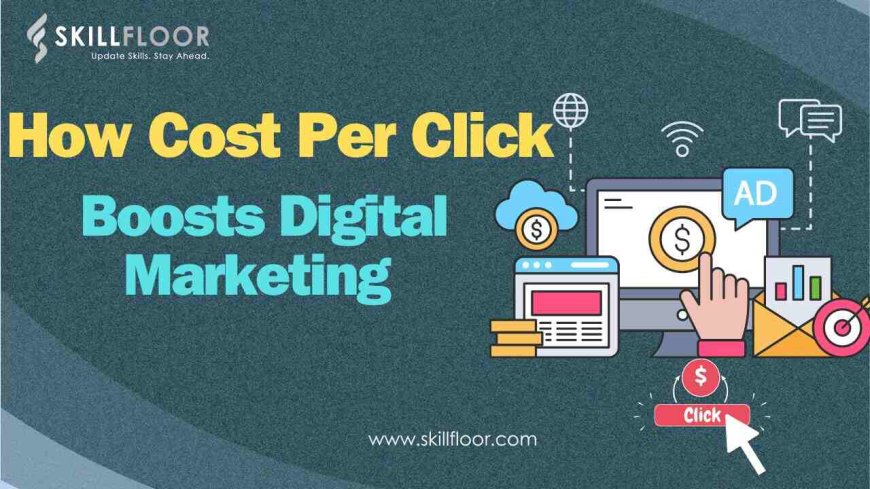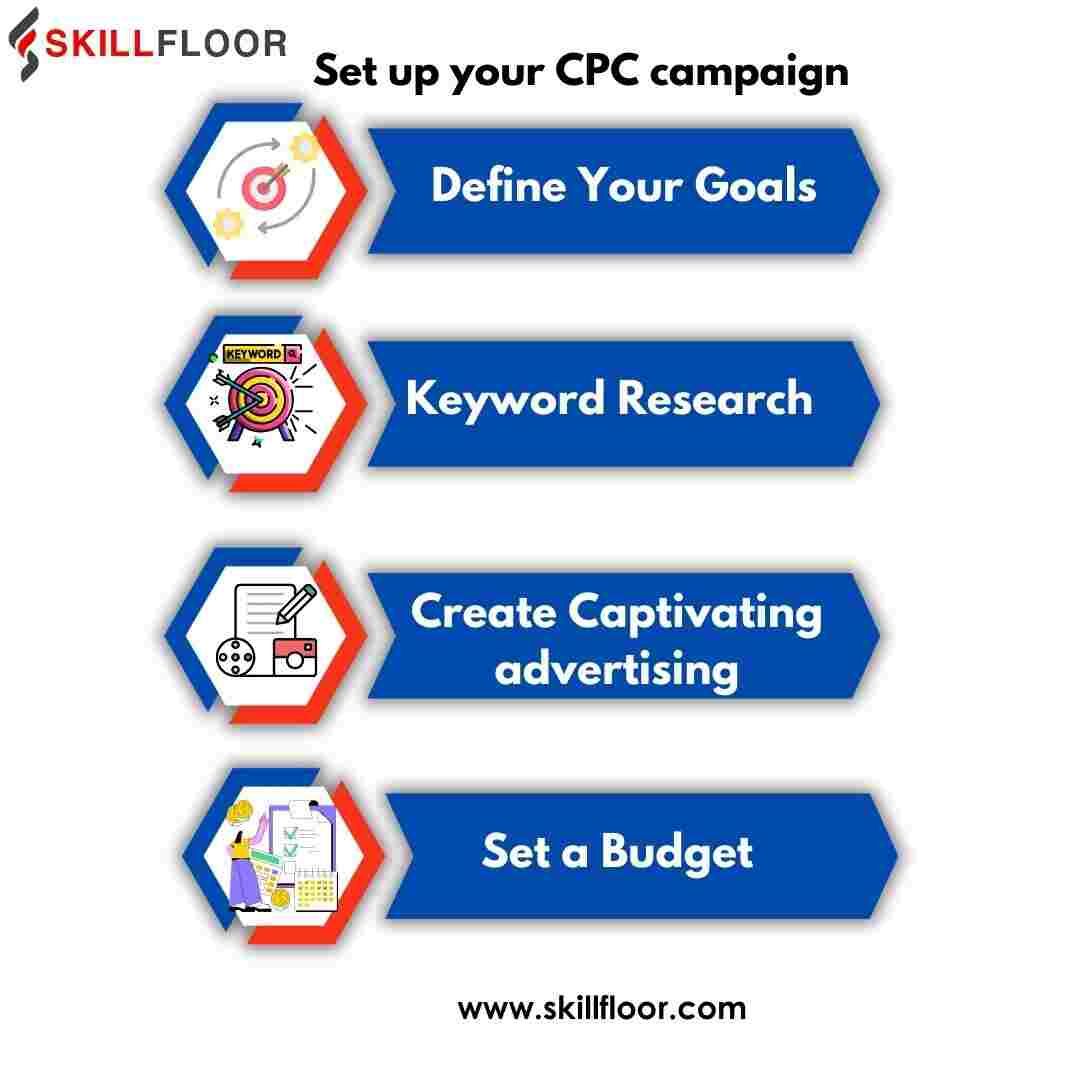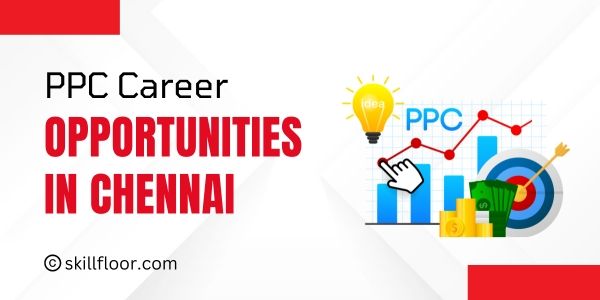The Importance of Cost Per Click in Digital Marketing
Discover why Cost Per Click (CPC) matters in digital marketing. Learn how CPC affects online ads and drives traffic to your website.

Hey, there! Are you looking to make the most of your digital marketing campaigns? we'll go over the importance of Cost Per Click (CPC) in digital marketing. Understanding Cost Per Click is important when getting started with SEO, SEM, or Social Media Marketing. So look at how mastering CPC can greatly improve your digital marketing plan.
What is the Cost Per Click (CPC)?
Cost Per Click (CPC) is an important indicator in Digital Marketing that calculates the amount you pay each time someone clicks on your online ad. It is a vital part of pay-per-click (PPC) advertising, in which marketers bid on keywords and pay for every click on their adverts. CPC allows you to see how much you're spending to attract potential buyers to your website, making it important for budget management and campaign optimization.
Why is cost-per-click important?
Budget Management: Cost Per Click allows you to keep track of your advertising spending. Knowing how much each click costs allows you to better organize your budget and avoid overspending.
Campaign Performance: CPC is a clear indicator of your campaign's effectiveness. A lower CPC suggests you're getting more clicks for your money, but a higher CPC may signal the need for marketing changes.
Keyword Strategy: Understanding CPC might help you improve your keyword strategy. High CPC keywords are frequently more competitive, so you may want to focus on lower-cost keywords to stretch your budget.
Return on Investment (ROI): Monitoring CPC enables you to compute the ROI of your campaigns. You may assess the efficacy of your advertising campaigns by comparing the cost of clicks to the income earned.
Set up your CPC campaign
Creating a successful CPC campaign involves many stages
Define Your Goals: What do you want to achieve with your campaign? Whether it's increasing website traffic, generating leads, or increasing revenue, clear goals are essential.
Keyword Research: Use tools like Google Keyword Planner to uncover keywords that are relevant to your business. Look for keywords that offer a fair combination of search volume and cost.
Create Captivating advertising: Your advertising should be engaging and relevant to your intended audience. Use compelling call-to-action phrases and make your adverts stand out.
Set a Budget: Determine how much you are willing to spend on your campaign. To keep your spending under control, set daily or monthly budgets.
Monitor and Adjust: Check your campaign's performance regularly and make any necessary adjustments. Optimize your advertising, keywords, and bids to get better results.

How to Optimize your CPC
Optimizing your Cost Per Click is important for increasing the effectiveness of your Digital Marketing Campaigns. Here are some strategies that will help you achieve the greatest results:
1. Use long-tailed keywords
Long-tail keywords are longer, more precise phrases that typically have lower competition and CPC. For example, instead of focusing on "digital marketing," consider "Digital Marketing Strategies for small businesses." This allows you to attract more targeted traffic at a reduced cost.
2. Improve your quality score
Quality Score is a statistic used by search engines like Google to assess the relevance and quality of your advertisements. A higher Quality Score might result in reduced CPCs and better ad positions. Focus on developing high-quality ads optimizing the landing page experience, and ensuring keyword relevance.
3. Bid strategically
Adjust your bids according to performance. Consider boosting your bids for high-quality traffic-generating keywords to gain visibility. Lower or pause bidding on underperforming keywords.
4. Optimize Your Ad Copy
Your ad wording has a huge impact on clicks. Test several variations of your advertising to determine which ones work the best. Use intriguing headlines, clear messaging, and powerful calls to action.
5. Use Negative Keywords
Negative keywords assist you avoid unwanted visitors by preventing your advertising from appearing for specific search searches. This can increase your click-through rate (CTR) and reduce wasteful spending.
Advanced Tips for CPC Success
1. Conduct A/B Testing
A/B testing, often known as split testing, is the process of running two versions of an ad to see which performs better. This can help you improve the effectiveness of your ad copy, pictures, and landing pages. Regularly testing and improving your advertising can result in big gains to your CPC efforts.
2. Focus on Conversion Rate Optimization (CRO)
CPC is only one part of the bind. To increase your ROI, focus on converting clicks into customers. This includes optimizing your landing pages, streamlining your checkout process, and providing a consistent customer experience. The higher your conversion rate, the more value you earn each click.
3. Monitor Competitors
Keep an eye on your competitors' cost-per-click strategies. Use tools like SEMrush or Ahrefs to examine their keywords, ad wording, and bids. Understanding what your competitors are doing might provide useful information and help you stay ahead in the digital marketing game.
4. Utilize Remarketing
Remarketing enables you to target users who have previously visited your website but did not convert. You could convince these people to return and make a purchase by showing them customized adverts as they browse other websites. Remarketing campaigns have lower CPCs and higher conversion rates, making them a cost-effective technique.
Integrating CPC with Other Digital Marketing Strategies
Cost Per Click does not work in a space. It works best when combined with other Digital Marketing methods, such as SEO, SEM, and social media marketing.
SEO and CPC
While SEO focuses on organic traffic, integrating it with CPC allows you to create a more holistic digital marketing strategy. Use SEO to generate long-term traffic, and CPC to obtain instant visibility. For example, you can conduct CPC advertising for keywords in your SEO plan to drive traffic while your organic rankings improve.
SEM & CPC
Search Engine Marketing (SEM) includes both SEO and PPC. By combining CPC and SEM, you can establish a balanced strategy that takes advantage of the benefits of both organic and sponsored search. This synergy can help you dominate search engine results pages (SERPs) and increase your overall visibility.
Social Media Marketing and CPC
Social media platforms such as Facebook, Instagram, and LinkedIn provide their own CPC advertising possibilities. Use these platforms to reach a larger audience and increase traffic to your site. You may also utilize social media to promote your top-performing pages and content, so improving all of your digital marketing efforts.
Understanding and improving cost per click is essential for anyone working in digital marketing, SEO, SEM, or social media marketing. Mastering CPC allows you to better manage your budget, improve campaign performance, and maximize ROI. Remember that digital marketing is a constant activity. Have to explore, analyze, and change your strategies to stay ahead of the competition.






























































